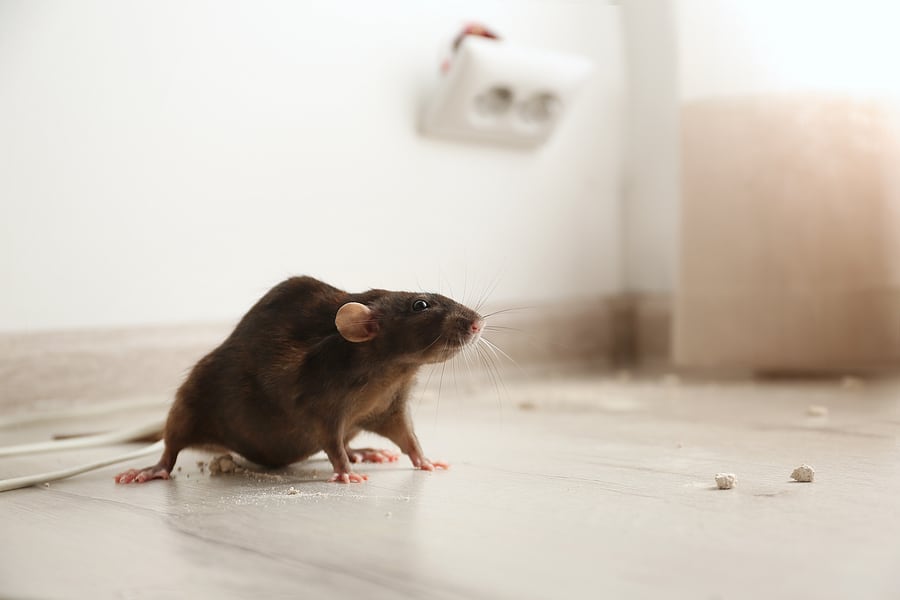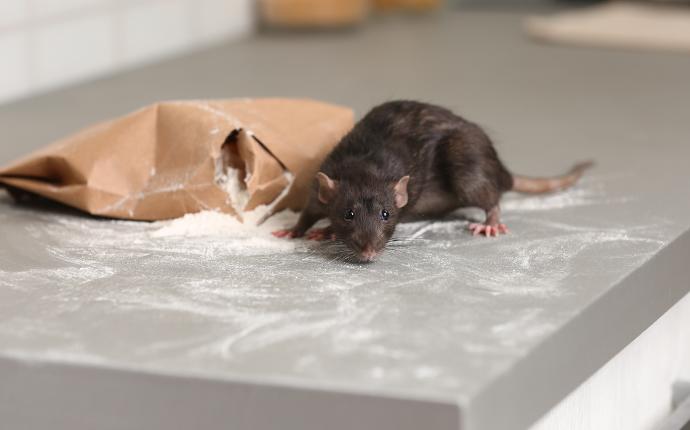Finding rodent droppings in rental property can be an alarming sign for tenants and landlords alike. These unwelcome discoveries not only indicate a rodent infestation but also pose health risks. Recognizing the signs early and taking appropriate action is crucial to maintaining a safe and hygienic living environment.
Rodent infestations are a common issue in rental properties, especially in urban areas. As rodents seek food and shelter, rental units often provide the perfect habitat. Understanding the causes, implications, and solutions for rodent droppings is essential for property managers and tenants to ensure a pest-free home.

Identifying Rodent Droppings
Recognizing the signs of a rodent infestation is the first step in addressing the problem. Rodent droppings are usually small, dark, and pellet-shaped. They can be found in areas where food is stored, under sinks, in basements, and along baseboards. Regular inspections can help in the early detection of these signs.
Other indicators of a rodent problem include gnaw marks, tracks, burrows, and nests. The presence of a musky odor is also a common sign of rodent activity. Once you identify these signs, it is vital to act swiftly to prevent the infestation from worsening.
Health Risks Associated with Rodent Droppings
Rodent droppings are more than just a nuisance; they pose significant health risks. They can carry diseases such as Hantavirus, Salmonella, and Leptospirosis, which can be transmitted to humans through direct contact or inhalation of particles. Proper sanitation and pest control measures are necessary to mitigate these risks.
For landlords, ensuring the safety and well-being of tenants is paramount. Addressing rodent issues promptly not only protects the health of occupants but also preserves the property's reputation and value.
Preventative Measures for Rodent Control
Prevention is always better than cure when it comes to rodent infestations. Implementing effective pest control strategies can help keep rental properties rodent-free. Here are some key measures:
Sealing Entry Points
Rodents can enter buildings through small gaps and cracks. Sealing these entry points with materials such as steel wool, caulking, or wire mesh can prevent rodents from accessing the property. Regular inspections of the property's exterior and interior can help identify and address potential entry points. For more tips on sealing entry points, check out this article on rodent entry points in old homes.
Maintaining Cleanliness
Maintaining a clean environment is crucial in preventing rodent infestations. Ensure that all food is stored in airtight containers, waste is disposed of promptly, and areas such as kitchens and basements are kept clean and clutter-free. Regular cleaning routines can significantly reduce the likelihood of attracting rodents.
Professional Pest Control Solutions
In cases of severe infestations, professional pest control services may be necessary. Pest control experts can provide comprehensive assessments and effective treatment plans tailored to the specific needs of a rental property.
Landlords and property managers should consider incorporating pest control services into their regular property maintenance schedules. This proactive approach can prevent infestations before they start and ensure a safe living environment for tenants. For more insights on incorporating pest control services, visit this discussion on Airbnb pest control services.
Role of Tenants in Rodent Control
Tenants also play a crucial role in maintaining a rodent-free environment. Reporting signs of infestation to property managers promptly can prevent the problem from escalating. Tenants should also adhere to cleanliness guidelines and cooperate with pest control measures implemented by landlords.
Communication and Cooperation
Effective communication between tenants and landlords is key to successful rodent control. Tenants should feel comfortable reporting issues, and landlords should respond promptly to concerns. Cooperation in implementing preventative measures and treatments ensures a harmonious living environment.
Conclusion
Addressing rodent droppings in rental property is a shared responsibility between landlords and tenants. By understanding the signs, health risks, and prevention strategies, property managers and occupants can work together to maintain a safe and hygienic home. Proactive measures and professional pest control services are essential in preventing and addressing rodent infestations effectively.

FAQs
What should I do if I find rodent droppings in my rental?
If you discover rodent droppings in your rental, report it to your landlord or property manager immediately. They can arrange for a professional pest control service to assess and address the situation.
How can I prevent rodents from entering my rental property?
Sealing entry points, maintaining cleanliness, and storing food properly are effective ways to prevent rodents from entering your rental property. Regular inspections and maintenance can also help in early detection and prevention.
Are landlords responsible for rodent infestations?
Landlords are generally responsible for ensuring the rental property is habitable and free from pest infestations. This includes addressing rodent issues promptly and maintaining the property to prevent future infestations.
